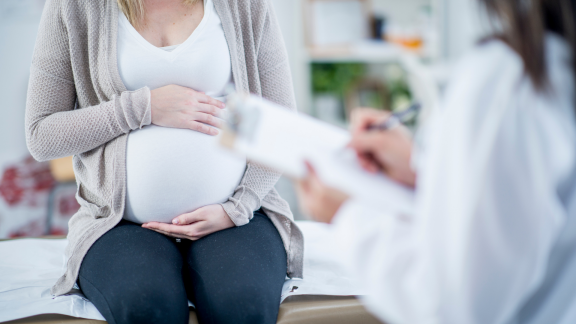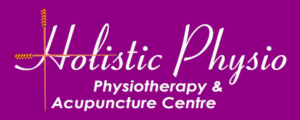My Fertility Journey
My Fertility Journey – I’ve Been There Too
Being a clinician doesn’t make you immune to fertility struggles. In my 20s, I was diagnosed with PCOS (Polycystic Ovary Syndrome). Thankfully, through the support of Chinese Herbal Medicine treatments from my dad, I was later cleared of PCOS. I lived a healthy lifestyle, ate well, exercised, and did “all the right things” — but stress was a big factor in my health.
By the time I reached 40, I experienced the frustration, disappointment, and heartache of trying to conceive without success. It was one of the hardest journeys of my life – one I know many of you can relate to.
My Success Story
At 42, I fell pregnant naturally and gave birth to my beautiful, healthy baby boy nine months later.
I’ll never forget that morning I woke at 5 AM, torn between the urge to check if I was pregnant and the fear of another negative test. To my absolute joy, it was a BFP (Big Fat Positive)!
Yes, I gave myself regular Acupuncture treatments and supported my body with high-quality supplements and herbs. And it worked.
That personal experience is why I’m so passionate about helping other couples. I know how hard the journey can be, and I want you to know you don’t have to go through it alone.

My Expertise in Fertility Support
Over the past 20 years, I’ve helped hundreds of couples in Brisbane with fertility challenges, including women going through IVF.
Common issues I see in women include:
- Endometriosis
- PCOS
- Adenomyosis
- Hormone imbalances (Oestrogen, Progesterone, Testosterone, AMH, Prolactin, Thyroid, LH, FSH)
For men, it’s often:
- Low sperm count
- Poor motility (movement)
- Poor morphology (shape)
- Hormonal issues such as low testosterone or high prolactin
Many couples today are starting their families later. Fertility naturally declines with age. By age 30, a woman’s fertility rate drops down to 10% and down to 5% by age 40. IVF can help but success rate falls to about 25% for those aged 38–40 and 4% for women over 42. This doesn’t mean you don’t have options. While IVF can help, combining it with holistic support — like Acupuncture, herbs, and supplements — can increase your chances of success.
How I Can Help
Acupuncture can support fertility by:
- Improving blood flow to the uterus and ovaries
- Regulating hormones
- Reducing stress
Alongside this, I prescribe practitioner-grade supplements and Chinese herbal medicine that are science-backed and highly bioavailable. These treatments work to:
- Improve ovulation
- Support egg quality
- Strengthen the uterine lining
- Improve pregnancy rates
- Enhance sperm health
- Support foetal development
Why Men Matter Too
Fertility is often thought of as “a woman’s issue,” but in reality, around 50% of fertility challenges are due to men. That’s why I encourage men to get tested and address sperm quality and hormone imbalances early. Supporting both partners gives the best chance of success.
Your Fertility Journey Starts Here
I know how overwhelming this journey can be — I’ve lived it myself. But with the right support, you can improve your chances of conception and feel more confident along the way.
Call the clinic today to discuss how I can help with your fertility journey.
Already familiar with acupuncture? Book your initial session online and take the first step toward your fertility success. session with me online. Look forward to working together for your fertility success.
Understanding Pregnancy and Fertility
Pregnancy and fertility are important parts of human health. Fertility means the ability to have children. When a person is fertile, it means their body can help create a baby. Pregnancy happens when a sperm from a man joins with an egg from a woman, and the fertilized egg grows inside the woman’s uterus.
Some people get pregnant easily, while others may need help. Many things can affect fertility, like age, health, stress, and lifestyle. For example, smoking, poor diet, or not getting enough sleep can make it harder to get pregnant. Women are most fertile in their 20s and early 30s. After age 35, fertility starts to decrease.
To improve fertility, it’s important to take care of your body. Eating healthy foods, exercising, and reducing stress can help. Tracking ovulation—the time when the egg is released—is also helpful. This usually happens about 14 days before a woman’s next period. Having sex during this time gives the best chance of getting pregnant.
If a couple has been trying to get pregnant for over a year without success, they may want to talk to a doctor. There are many safe and helpful treatments for fertility. These include medicine, acupuncture, and special procedures like IVF (in vitro fertilization). Some people also use natural therapies to support their body and improve their chances.
Pregnancy is a special time. The body goes through many changes to support the growing baby. It’s important to get regular checkups, eat well, and rest. Some women may feel tired, sick, or emotional, but these are normal signs. Staying healthy during pregnancy helps both the mother and baby.
Whether you’re trying to get pregnant or already expecting, learning about pregnancy and fertility can help you feel more confident and prepared. Every person’s journey is different, and support is always available. With the right care and knowledge, many couples can enjoy a safe and happy pregnancy.
